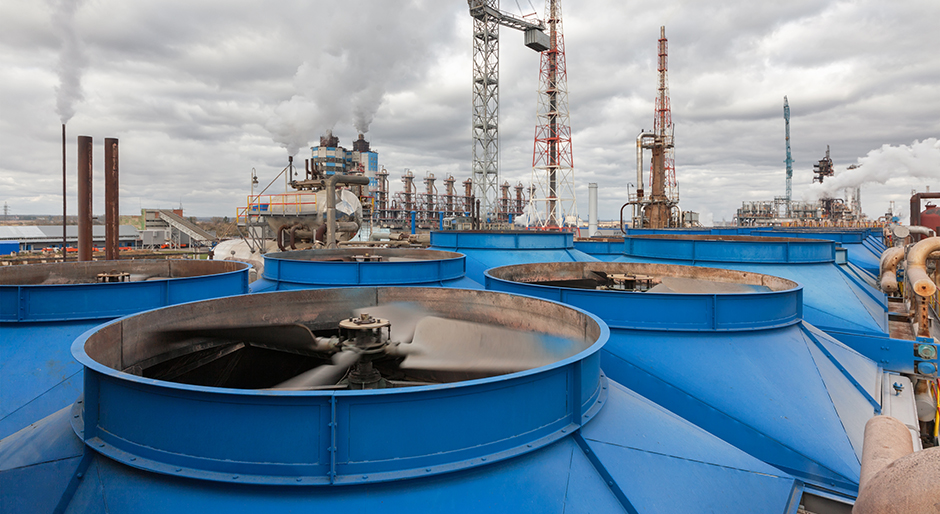TIGHTER EU EMISSION REGULATIONS — Nitrogen producers will be the most affected in the fertilizer sector by tighter emission regulations, particularly in Europe, and by closer investor focus, Fitch Ratings says. Long-term costs and decarbonisation CAPEX needs will increase, but companies with credible ESG strategies can offset some pressures. The European Commission’s new ‘Fit for 55’ climate plan is the latest regulatory proposal that will affect the sector, if approved by the EU Parliament, mostly through the revised terms for the Emission Trading System (ETS), and the introduction of the Carbon Border Adjustment Mechanism (CBAM). This proposal will affect European producers and exporters to the EU, but many countries outside the EU are considering similar regulations. However, the strictest regulatory requirements should come into force outside of Fitch Ratings’ forecast horizon. With carbon costs for fertilizer producers projected to rise as a result, ammonia producers will be most affected by the drive to cut emissions as hydrocarbons, mostly natural gas, are used as a feedstock in its production. The nitrogen industry is responsible for about 1% of global CO2 emissions. When applied to soil, fertilizers containing nitrogen emit nitrous oxide, which has at least 265 times higher impact on climate change than CO2. Also, urea has the largest ammonia losses and its untreated use is banned in Germany. It is likely that demand for some fertilizers, such as nitrates, especially calcium ammonium nitrate, will increase as Europe targets carbon neutrality by 2050.
FORGOTTEN ‘LAUGHING GAS’ — As nations and industries try to cut greenhouse gas emissions to tackle climate change, agricultural practices are in the spotlight. There’s good reason for that: Agriculture accounts for 16-27% of human-caused climate-warming emissions, according to the Intergovernmental Panel on Climate Change (IPCC). But much of these emissions are not from carbon dioxide, that familiar climate change villain. They’re from another gas altogether: nitrous oxide. N2O, also known as ‘laughing gas’, is “a forgotten greenhouse gas,” says David Kanter, a nutrient pollution researcher at New York University. Yet molecule for molecule, N2O is about 300 times as potent as carbon dioxide at heating the atmosphere. And like CO2, it is long-lived, spending an average of 114 years in the sky before disintegrating. It also depletes the ozone layer. In all, the climate impact of laughing gas is no joke. But despite its important contribution to climate change, policy makers have not directly addressed N2O emissions. Today, scientists are looking at an array of ways to treat the soil or adjust farming practices to cut back on N2O production. “Anything that can be done to improve fertilizer use efficiency would be big,” says Michael Castellano, an agroecologist and soil scientist at Iowa State University. And if policy makers turn to tackling nitrous oxide, there should be rippling benefits for all of us, says Kanter of New York University. Some of them could be more rapid and tangible than addressing climate change. The same measures that lower N2O levels also reduce local air and water pollution as well as biodiversity losses. “Those are things that people will see and feel immediately,” Kanter says, “within years as opposed to within decades or centuries.”
UKRAINE-BELARUS IMPORT RESTRICTIONS — Ukrainian chemists reported to the Ministry of Economy of Ukraine to impose restrictions on the import of nitrogen-phosphorus fertilizers from Belarus, said Igor Golchenko, the Vice-President of the Ukrainian Chemists Union. According to his statement, earlier in March this year, they have submitted an anti-discriminatory application regarding the import of potassium chloride from Belarus to protect the interests of Sumykhimprom and the Dneprovsky plant of mineral fertilizers. The current situation in Ukraine with the import of agricultural chemicals from Belarus happened due to the imposed American sanctions. “The sanctions against Belarus are already strongly affecting the Ukrainian market. Grodno Azot and Belneftekhim have been included in the US sanctions list. American companies are already refusing to work with them. The European Union market is also shrinking for Belarusian fertilizers. Everything that Belarusian companies cannot sell to Western markets is already going to Ukraine. Belarusian producers in May and June exported to the Ukrainian market twice more fertilizers compared to April,” said Igor Golchenko.




